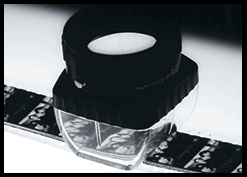GME Remembers Pioneering Activist, Author, and Film Historian Vito Russo This LGBTQ+ History Month
/VITO RUSSO. SOURCE: NYC LGBT HISTORIC SITES PROJECT.
If you’re going to talk about the gay rights movement, you’re going to talk about Vito.” —David Ehrenstein, film critic.
Vito Russo may be best known today as the author of the seminal book THE CELLULOID CLOSET, which examines the history of depictions of homosexuality in Hollywood films. Russo, however, had a long career as a film historian, archivist, and activist. After obtaining a Master’s in film at New York University, he worked in the Museum of Modern Art’s film department, distributing 16mm prints to academic institutions. Russo’s experience working with film archival material and his vast knowledge of film history — particularly, portrayals of queer and queer-coded characters in classic Hollywood movies — informed much of THE CELLULOID CLOSET and his later work.
When the Gay Activists Alliance (GAA) used a SoHo firehouse as their headquarters in the early 1970s, Russo started “Firehouse Flicks,” a Friday night series of classic Hollywood movies programmed with LGBTQ+ audiences in mind. In 1985, he co-founded the Gay and Lesbian Alliance Against Defamation (GLAAD), a media watchdog organization that strives to end anti-LGBTQ+ rhetoric, and advocates for LGBTQ+ inclusion in popular media. Two years later, he co-founded the AIDS Coalition to Unleash Power (ACT UP). He also created and hosted a TV series focusing on the gay community, called OUR TIME, for WNYC-TV public television. Russo died of AIDS-related complications in 1990, at the age of 44.
GME President Jon Gartenberg worked with Russo at MoMA, and later appeared in the 2011 HBO documentary about his life, titled VITO. Gartenberg recalls: “What struck me about Vito was that he appeared to be completely comfortable in his own skin, which undoubtedly enabled him to be at the forefront of gay activism.”
An interview with Gartenberg regarding MoMA, during the time he worked there alongside Russo, in addition to archival footage of Russo, can be viewed in the excerpt from VITO (2011) below.


